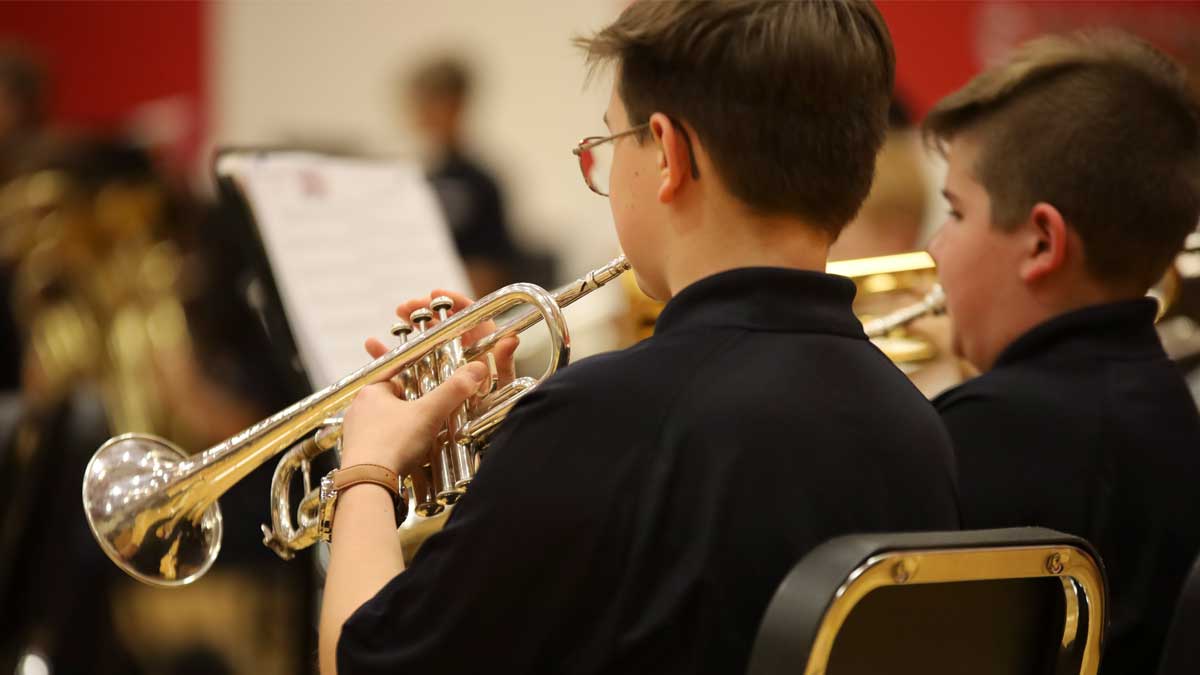Last Minute Solo and Ensemble Tips

I get it. Performing as a soloist might not be the most comfortable experience for you now, but with more practice and the right mindset, soloing can become one of your favorite ways to play. Here are seven tips on how to set yourself up for success at solo and ensemble.
- Relax. This may be easier said than done, but going into a performance with a quiet mind and a relaxed body is a recipe for success. We’ll get into the specifics of being physically relaxed below, but find something unique to you that makes you mentally relaxed. A quiet mind means you can focus on one thing (the sound coming out of your bell) without outside distractions of that homework assignment you still have to work on or that TV show you want to watch. Sometimes the best day-of recital preparation for me is taking five minutes to sit in silence and pet my dogs before I go to perform.
- Stay Hydrated. This is the easiest step of all. Drink plenty of water and avoid overly salty food for a couple of days leading up to your performance. Chapped lips making playing your instrument even more difficult. Apply lip balm after you play (never before).
- Stretch. Tension kills sound. You don’t have to do a full workout session to limber up before the performance, but remember that playing any musical instrument requires physical mobility. Take a few deep breaths, do some neck rolls, and loosen up enough that you’re not getting in your own way.
- Stay positive. Absolutely no one is rooting for you to fail. Judges want to hear well-played music from a developing musician. They are looking to see a student who is putting their best foot forward, making an effort, and having a good time. Your family wants you to succeed. Your private teacher wants you to succeed. Judges want to see musical growth and evidence of effort. They are not expecting to hear Joseph Alessi. Take a deep breath, smile, and do the best you can.
- Don’t cram. At this point, either you know the music or you don’t. You can still work on cleaning up a spot here and there, but don’t expect to learn an entire piece of music by Saturday if you haven’t already been putting in the work. Set realistic goals, and remember that your body needs time to rest. Over practicing the day before (or day of) the performance will likely do more harm than good. Sing through your part or listen to great recordings. Focus on fundamentals and beautiful sounds. Don’t pick the day before the show to decide to test out the newest routine to get you the quadruple high G you’ve been dying to harness.
- Let your family and private teacher into the room. I have had countless private students over the years who are uncomfortable letting their family join them for the performance. I would say about 50% of the time the only people in the room are the performers, the judge, and me (the private instructor). While I understand the fear of playing for a crowd, it is important to remember that these are the people who are there to support you. They want to see you succeed, and they are the ones who have helped you get here. Play for them.
- Forget about the score. You might be getting a score, but music isn’t just a competition. Play because you want to share something. Focus on making a gorgeous sound and conveying emotion. If you do this, the score will likely be high. Don’t play for a grade; play for an audience.

No Comments